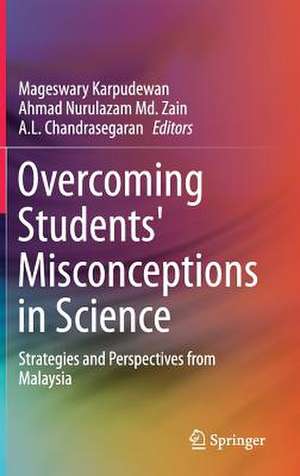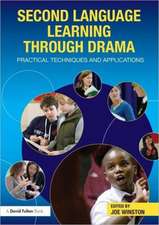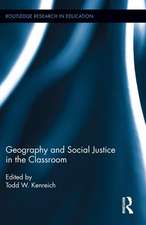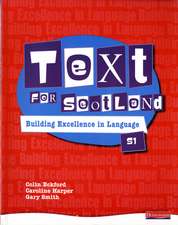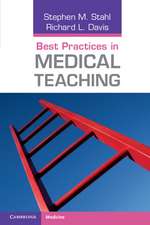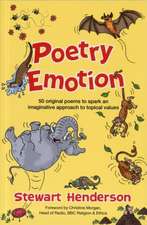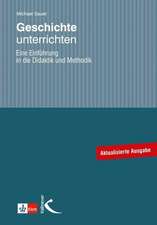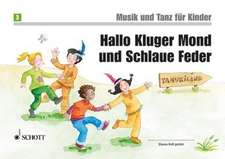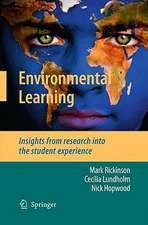Overcoming Students' Misconceptions in Science: Strategies and Perspectives from Malaysia
Editat de Mageswary Karpudewan, Ahmad Nurulazam Md Zain, A.L. Chandrasegaranen Limba Engleză Hardback – 6 mar 2017
This book discusses the importance of identifying and addressing misconceptions for the successful teaching and learning of science across all levels of science education from elementary school to high school. It suggests teaching approaches based on research data to address students’ common misconceptions. Detailed descriptions of how these instructional approaches can be incorporated into teaching and learning science are also included.
The science education literature extensively documents the findings of studies about students’ misconceptions or alternative conceptions about various science concepts. Furthermore, some of the studies involve systematic approaches to not only creating but also implementing instructional programs to reduce the incidence of these misconceptions among high school science students. These studies, however, are largely unavailable to classroom practitioners, partly because they are usually found in various science education journals that teachers have no time to refer to or are not readily available to them. In response, this book offers an essential and easily accessible guide.
| Toate formatele și edițiile | Preț | Express |
|---|---|---|
| Paperback (1) | 1111.04 lei 6-8 săpt. | |
| Springer Nature Singapore – 3 mai 2018 | 1111.04 lei 6-8 săpt. | |
| Hardback (1) | 1117.03 lei 6-8 săpt. | |
| Springer Nature Singapore – 6 mar 2017 | 1117.03 lei 6-8 săpt. |
Preț: 1117.03 lei
Preț vechi: 1362.23 lei
-18% Nou
Puncte Express: 1676
Preț estimativ în valută:
213.77€ • 222.90$ • 177.66£
213.77€ • 222.90$ • 177.66£
Carte tipărită la comandă
Livrare economică 21 martie-04 aprilie
Preluare comenzi: 021 569.72.76
Specificații
ISBN-13: 9789811034350
ISBN-10: 9811034354
Pagini: 344
Ilustrații: XVI, 344 p. 52 illus.
Dimensiuni: 155 x 235 x 21 mm
Greutate: 0.68 kg
Ediția:1st ed. 2017
Editura: Springer Nature Singapore
Colecția Springer
Locul publicării:Singapore, Singapore
ISBN-10: 9811034354
Pagini: 344
Ilustrații: XVI, 344 p. 52 illus.
Dimensiuni: 155 x 235 x 21 mm
Greutate: 0.68 kg
Ediția:1st ed. 2017
Editura: Springer Nature Singapore
Colecția Springer
Locul publicării:Singapore, Singapore
Cuprins
Chapter 1 Misconceptions in science education: An overview.- Part I: Misconceptions identified during teaching and learning of primary science and strategies used to address the identified misconceptions.- Chapter 2 Utilizing concept cartoons to diagnose and remediate misconceptions related to photosynthesis among primary school students.- Chapter 3 Facilitating primary school students' understanding of water cycle through guided inquiry-based learning.- Chapter 4 A study on addressing students' misconceptions about condensation using the Predict-Discuss-Explain-Observe-Discuss-Explain (PDEODE) strategy.- Chapter 5 Inquiry-discovery teaching approach as a means to remediate primary students' misconceptions about the phases of the moon.- Part II: Misconceptions about Chemistry concepts and strategies to address the identified misconceptions.- Chapter 6 Misconceptions in electrochemistry: How do pedagogical agents help?.- Chapter 7 The effectiveness of Computer-Assisted Instruction (CAI) in promoting pre-university students' understanding of chemical bonding and remediating their misconceptions.- Chapter 8 Green chemistry-based Dual-Situated Learning Model: An approach that reduces students' misconceptions on acids and bases.- Chapter 9 The effectiveness of Physical Education Technology (PhET) interactive simulations in enhancing matriculation students' understanding of chemical equilibrium and remediating their misconceptions.- Part III: Misconceptions about Physics concepts and strategies to address the identified misconceptions.- Chapter 10 The integration of fund of knowledge in the hybridization cognitive strategy to enhance secondary students' understanding of physics optical concepts and remediating their misconceptions.- Chapter 11 Fostering understanding and reducing misconceptions about image formation by a plane mirror using constructivist-based hands-on activities.- Chapter 12 Addressing secondary school students' misconceptions about simple current circuits using the learning cycle approach.- Chapter 13 The use of the Process Oriented Guided-Inquiry Learning (POGIL) approach to address Form One students' misconceptions about weight and mass.- Part IV: Misconceptions relevant to Biology concepts and strategies to address the identified misconceptions.- Chapter 14 Improving understanding and reducing matriculation students' misconceptions in immunity using the flipped classroom.- Chapter 15 Improving understanding and reducing secondary school students' misconceptions on cell division using animation-based instruction.- Chapter 16 Comparison between realistic and non-realistic simulations in reducing secondary school students' misconceptions on mitosis and meiosis processes.- Chapter 17 Climate change activities: A possible means to promote understanding and reduce misconceptions about acid rain, global warming, greenhouse effect and ozone layer depletion among secondary school students.
Notă biografică
Dr. Mageswary Karpudewan, co-editor and contributor, is an Associate Professor at the School of Educational Studies, USM. She began her career in education as a chemistry teacher in 1996. Subsequently, she joined USM as a chemistry educator in 2011. Her research interests include integrating green chemistry into teaching and learning of secondary-school science and chemistry and teacher education programs. Dr. Mageswary is an active Editorial Board member for the International Journal of Science and Environmental Education (SCOPUS indexed) and Eurasian Journal of Physics and Chemistry Education. She is also an active reviewer for various science education journals. Her works have been published in national and international journals, and she has written chapters in books and monographs that have been published at both the national and international level.
Dr. Ahmad Nurulazam Md. Zain, co-editor, is a Professor at the School of Educational Studies, USM. He has more than 25 years of teaching and research experience at USM including a short stint at King’s College London. He was Director of the National Higher Education Research Institute, Deputy Dean of the School of Educational Studies, USM and Program Manager at the Centre of Education and Training in Renewable Energy. His research areas include science education, higher education and computer education. His works have been published in national and international journals. He has also written chapters in books and monographs that have been published at boththe national and international level.
Dr. A. L. Chandrasegaran, co-editor, is a Research Associate at the STEM Education Research Group, part of the School of Education at Curtin University in Perth, Australia. After obtaining a BSc (Hons) from the University of Canterbury, Christchurch, NZ and a Teaching Diploma from the Christchurch Teachers’ College on a Colombo Plan scholarship, he began his career in education as a chemistry teacher at English College, Johor Bahru in 1966, then was Johor State Science Supervisor before retiring as Principal of Sultan Ibrahim Secondary School in Kulai. He subsequently taught general science and chemistry in Singapore and Perth before joining Curtin University in 2005 after obtaining an MSc (Sc.Ed.) and PhD from Curtin University. His research interests include evaluating students’ understanding of science concepts and developing two-tier multiple-choice diagnostic assessments in science.
Textul de pe ultima copertă
This book discusses the importance of identifying and addressing misconceptions for the successful teaching and learning of science across all levels of science education from elementary school to high school. It suggests teaching approaches based on research data to address students’ common misconceptions. Detailed descriptions of how these instructional approaches can be incorporated into teaching and learning science are also included.
The science education literature extensively documents the findings of studies about students’ misconceptions or alternative conceptions about various science concepts. Furthermore, some of the studies involve systematic approaches to not only creating but also implementing instructional programs to reduce the incidence of these misconceptions among high school science students. These studies, however, are largely unavailable to classroom practitioners, partly because they are usually found in various science education journals that teachers have no time to refer to or are not readily available to them. In response, this book offers an essential and easily accessible guide.
Caracteristici
Discusses the importance of identifying and addressing students’ misconceptions for the successful teaching and learning of science
Suggests teaching approaches based on research data to address students’ misconceptions
Serves as a reference guide for postgraduate and undergraduate courses as well as a course text
Includes supplementary material: sn.pub/extras
Suggests teaching approaches based on research data to address students’ misconceptions
Serves as a reference guide for postgraduate and undergraduate courses as well as a course text
Includes supplementary material: sn.pub/extras
